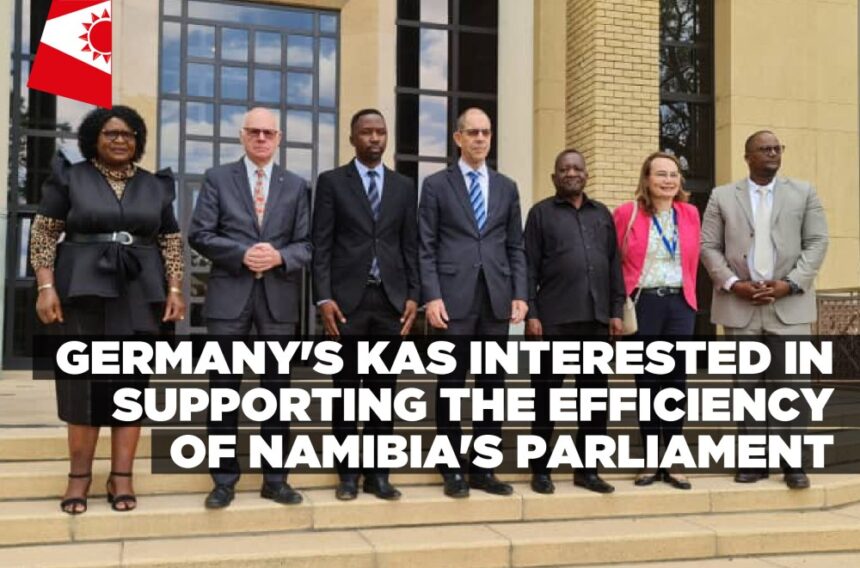Staff Reporter
THE current Chairperson of the Konrad Adenauer Foundation (KAS) and former Speaker of the German Parliament, Professor Norbert Lammert, conveyed the foundation’s keen interest in supporting the vitality and efficiency of Namibia’s parliament.
“What we, the Adenauer Foundation, would like to support is the vitality and efficiency of Parliament within the constitutional democracy like Namibia. To put it bluntly, political systems don’t differ from each other by the existence of a government. There is always a government in any political system. They differ in terms of whether there is a serious parliamentary system controlling and participating in the process, and to which extent,” Lammert said.
He expressed this interest during a recent courtesy meeting with the Chairperson of the National Council, Lukas Sinimbo Muha. According to Muha, this meeting marks the initiation of a close and productive working relationship between the Parliament of Namibia and KAS.
“Your visit signifies the importance of the existing cordial relationship between our countries as well as the two Parliaments, and particularly your organisation and the National Council,” Muha added.
During their discussions, both leaders underscored the intricate history that binds their nations. Muha highlighted the strengthening inter-parliamentary relationship that has developed between their respective Parliaments, while Lammert emphasized the similarities in political systems between Namibia and Germany.
“There is no other country in Africa which Germany has a more direct connection in relation with than Namibia. We don’t only share a complicated common history, but even similar structures as far as the constitutional understanding of the political systems are concerned. You are organised in regions, which participate in the process of radical decision-making, and we have, in principle, a similar situation is Germany,” Lammert said.
Muha expressed the National Council’s eagerness to learn from Germany’s federal system and its best practices through parliamentary exchanges. He highlighted the modernization of parliament operations within the framework of an e-parliament strategy, resource allocation to regional government, and overall service delivery at the grassroots level as key areas of interest for learning.



Leave a Reply